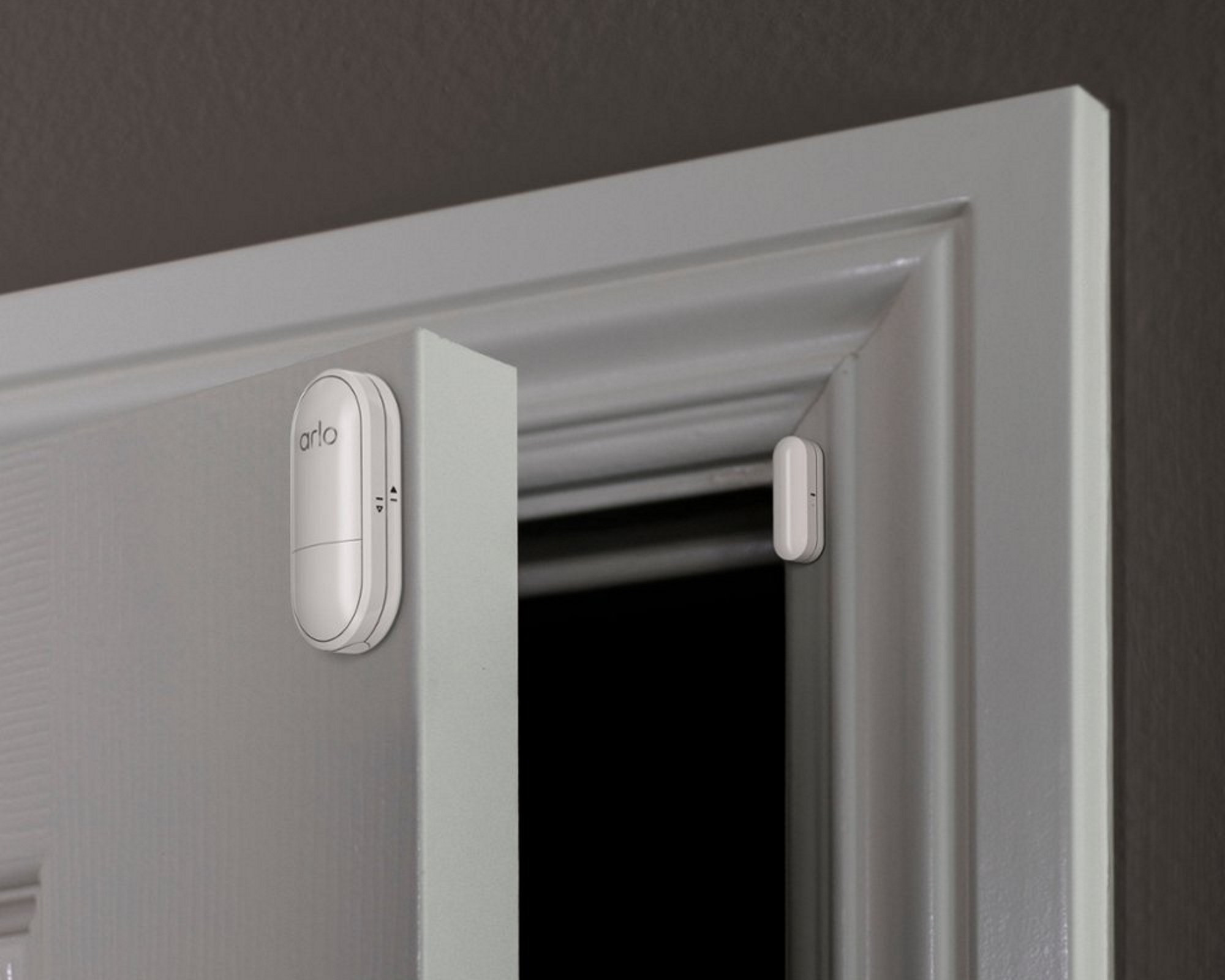
When we think about home security, it's often the full package that comes to mind. The installation, the cost, or the fancy cameras that will catch potential burglars and vandals. But it's also useful to think outside of the box about what you might use individual elements for around the home, whether that's motion sensors, water detectors, or - as we will discuss - contact or entry sensors.
These sensors come will almost all of the best home security systems, even the basic packages, and are incredibly useful when used right. Designed for doors and windows, these two-part devices use a magnet to detect when someone has gained access to your home without your knowledge.
We've discovered all sorts of clever things to do with these multi-purpose sensors over the years, so keep reading to get inspired.
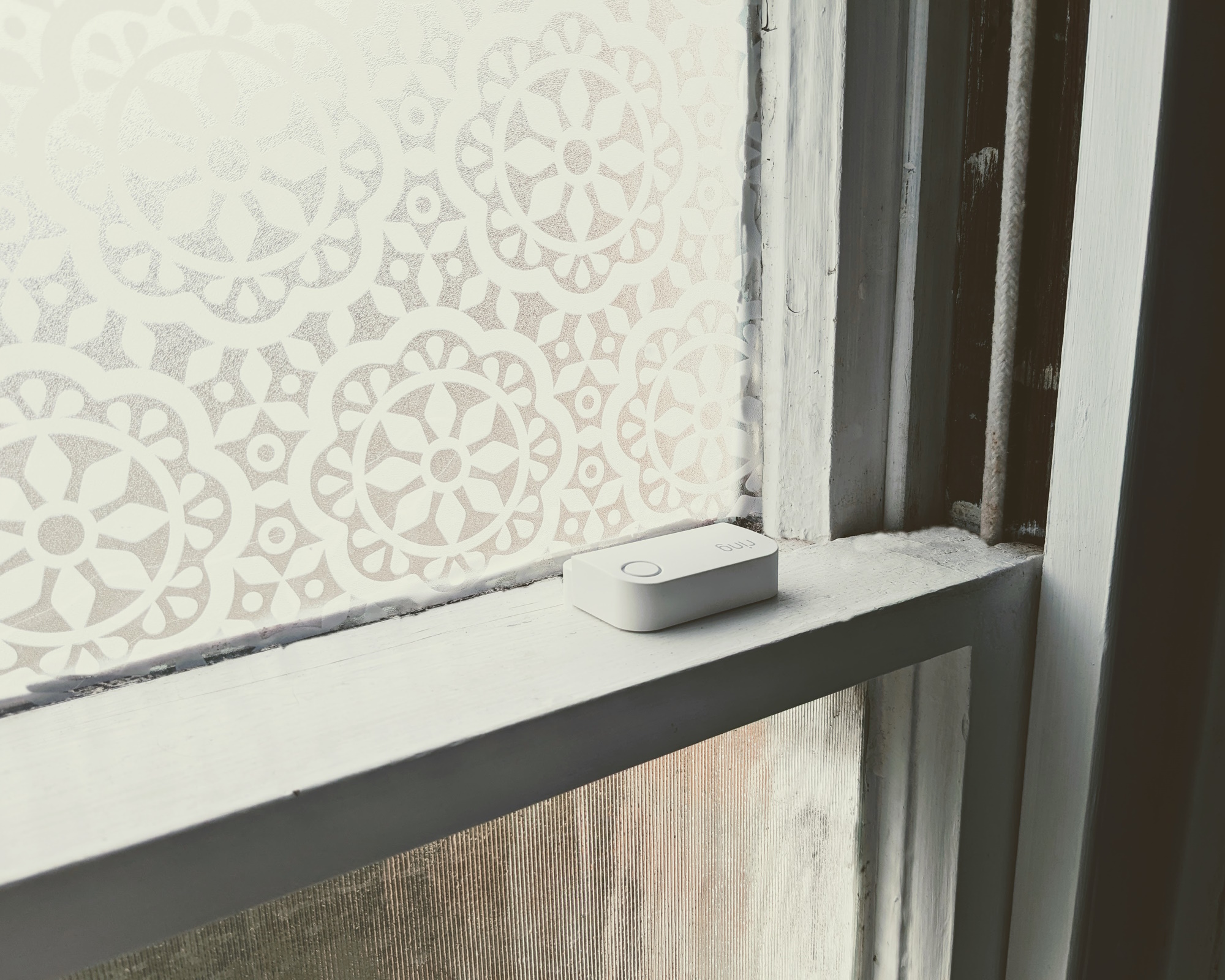
1. Windows, doors, and everything in between
Starting off with the obvious, and what contact sensors are designed for - windows and doors. This type of sensor is super-effective at keeping anything that opens and closes secure, as the magnet can tell as soon as the two parts of the device have moved away from one another.
They also work on almost any window or door type, as demonstrated on our own old-fashioned period windows in the image above (using sensors from the Ring Alarm Kit). Though there are outdoor weather-proof sensors available from some brands, indoor ones also tend to be hidden, meaning any would-be intruders will be caught unawares.
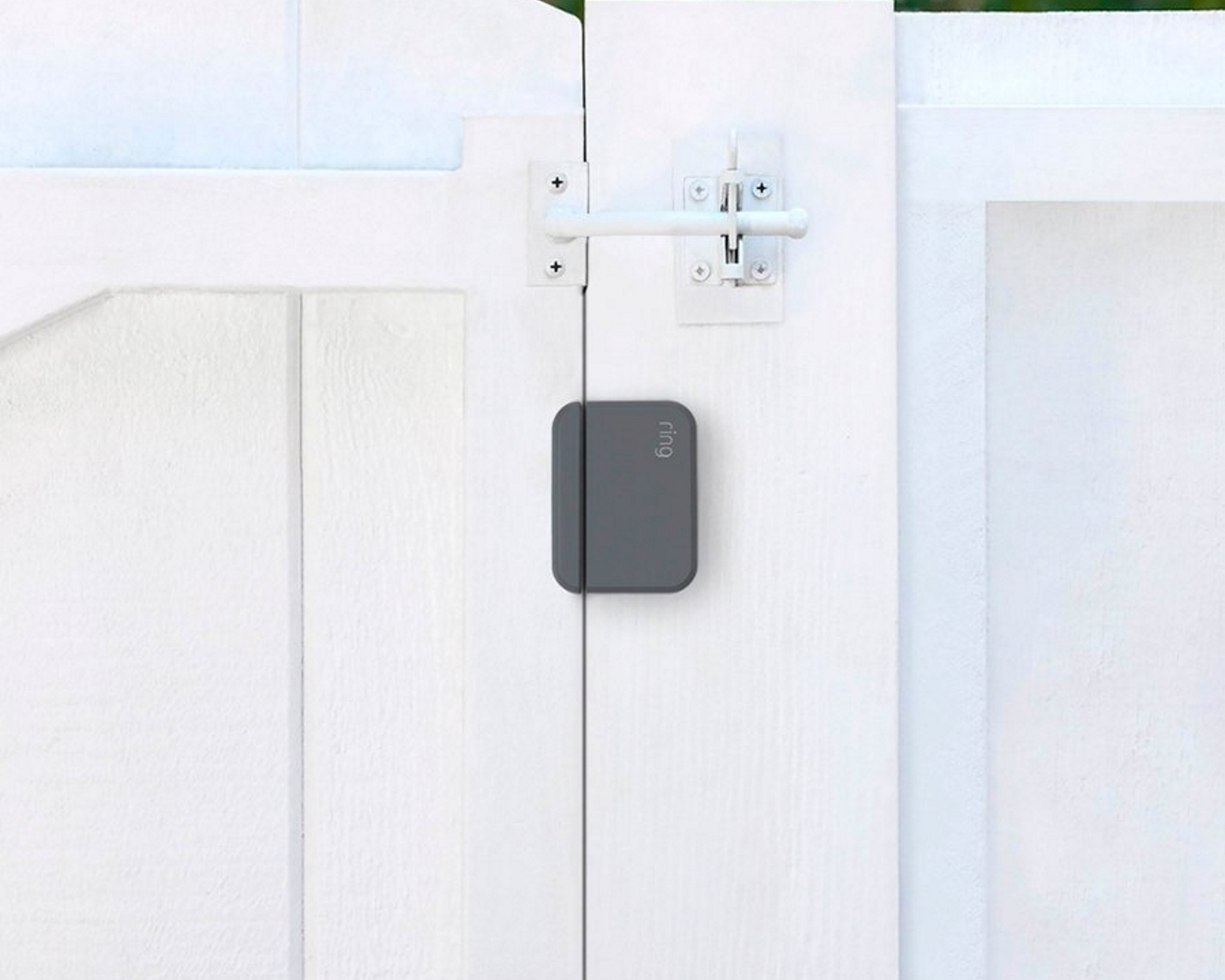
2. Garden gates and sheds
As mentioned above, some security brands do offer weather-proof contact sensors that can be used outdoors. One great use for one's like from Ring (pictured), is on garden gates, so you can be alerted whenever someone is approaching your home. They're more convenient than motion sensors (either standalone or as part of a security camera or wireless doorbell), as they only go off when the gate is opened.
If you're not confident in the strength of your trash can lids, either, contact sensors are even great protection against animals like raccoons or foxes getting into the trash overnight.
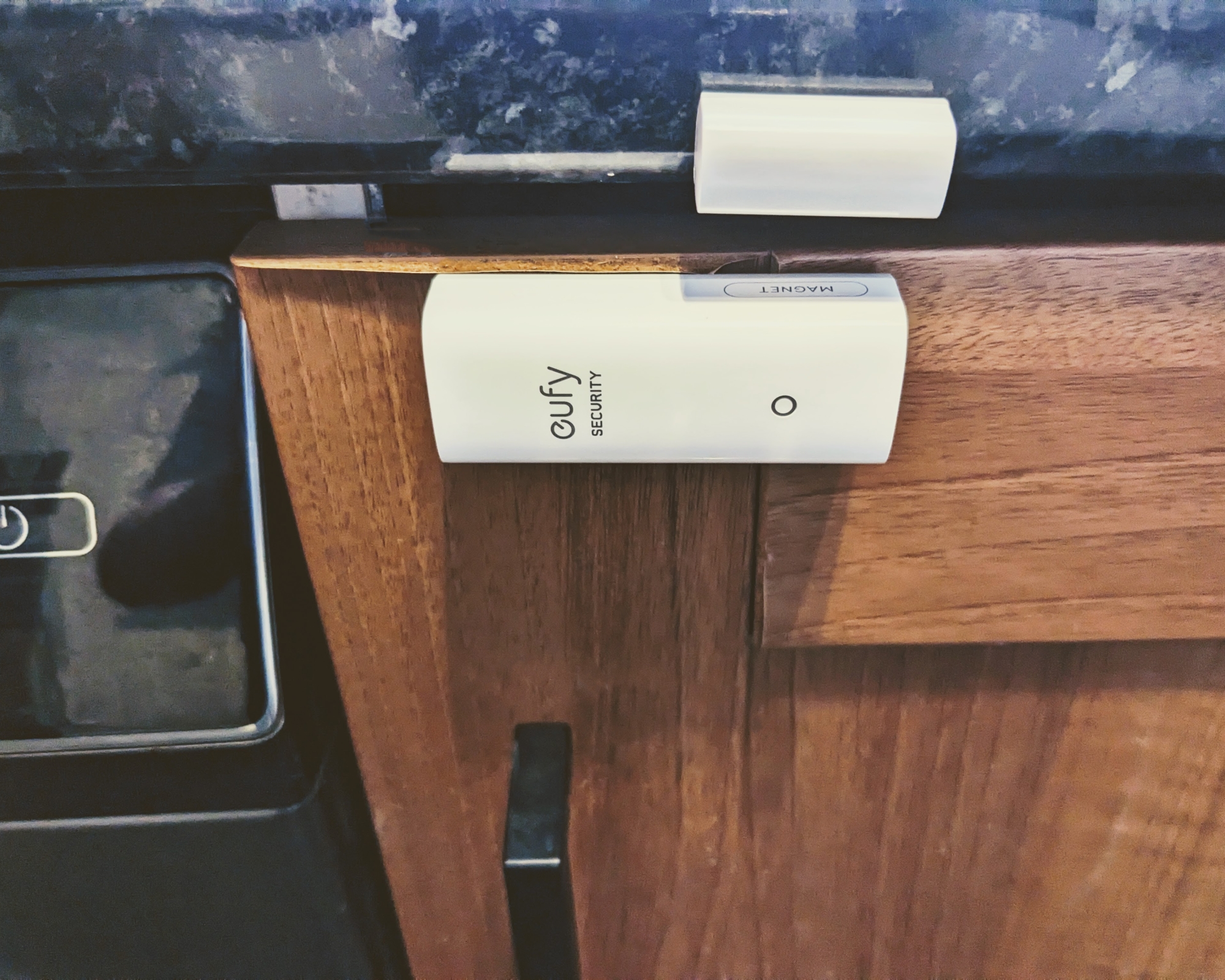
3. Kitchen cupboards
No matter how au natural we all want to be when it comes to household cleaning, we all have that one cupboard that is filled with toxic chemicals - usually in the kitchen or bathroom. If we have pets and children, then the fear of them somehow gaining access to this area is all too real.
Child locks go a long way towards quelling that terror, but putting a contact sensor (like the one pictured from eufy) on these cupboards and drawers means that - whether through bad luck or forgetfulness - should your vulnerable family member gain access, you'll know about it straight away.
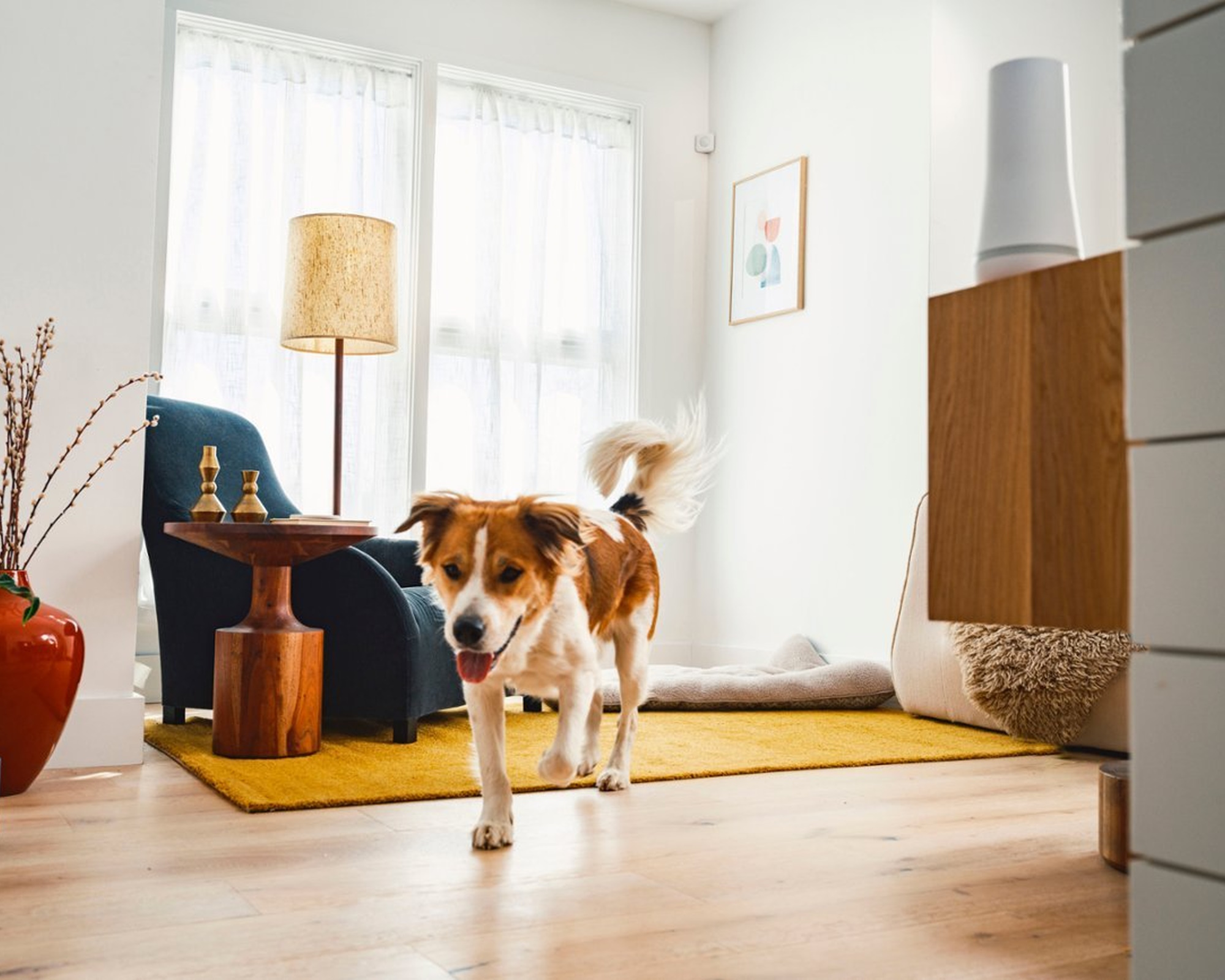
4. Toy and food storage
Speaking of pets, they really do have a habit of getting into those places you don't want them to. No matter how well you think you've hidden the treats, your furry pal will definitely know exactly where the stash is and do whatever they can to gain access. So, even if you can't guarantee that they can't reach the food bag, you can know about it as soon as they slip behind you and climb to that secret hiding place.
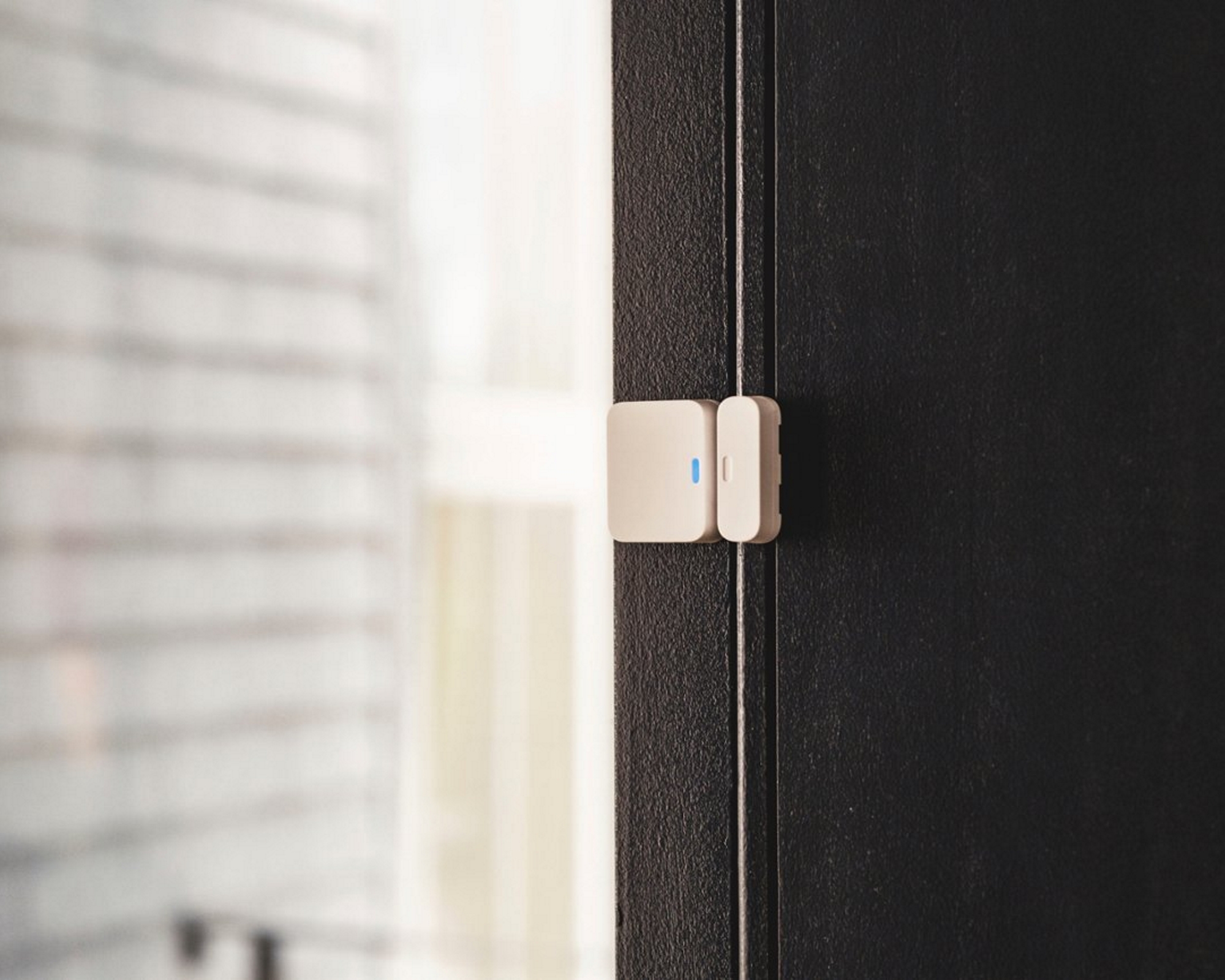
5. Liquor cabinets
Do you have a teenager at home who has been eyeing the drinks cabinet a little too curiously of late? All young people have friends over and, if you want to be absolutely sure that the gin bottle won't suddenly get watered down (or you just want to know about it when it happens), then you can make sure all liquor is stored in a cabinet and install a contact sensor.
Hooked up to the rest of your security system and able to deliver an alert to your phone, even just having it there will likely dissuade family members from going anywhere near.







